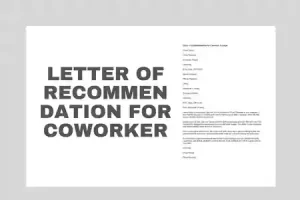A dozen suggestions to help you write an effective consumer complaint letter.
In the face of a multitude of consumer complaint letter on a daily basis, there is a few complaints an organization, company or institution can satisfy.
Which problems are most likely to be addressed?
If you answered – the most valid criticisms. you’re not right.
A business cannot always resolve a legitimate complaint. The competition among consumers who are clamoring to get a remedy is fierce and there’s another factor which clearly outweighs the need for the need for justification.
Consumer Complaint Letter
The consumer complaint letter with the greatest chance of getting a satisfactory answer is the one that smells and looks as ‘trouble.’
It’s a fundamental reality that no one would like to deal with any person or thing that smells or looks like trouble.’
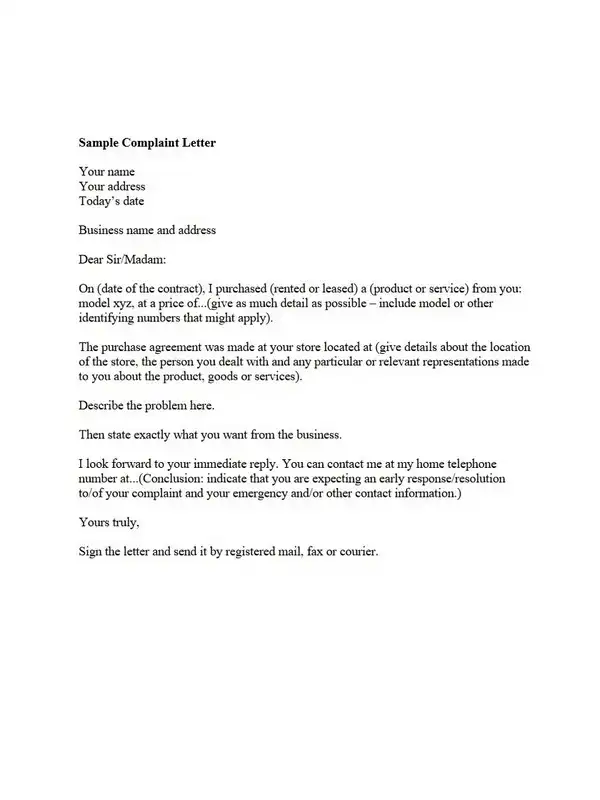
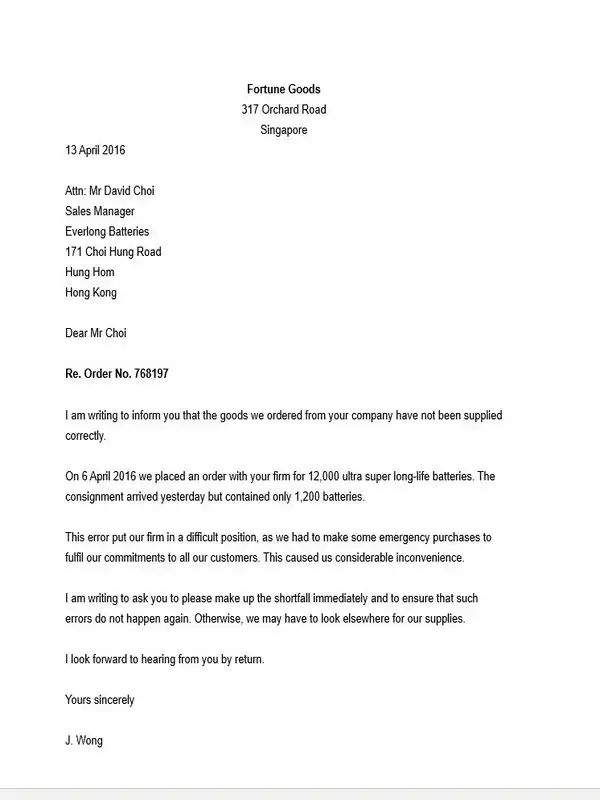
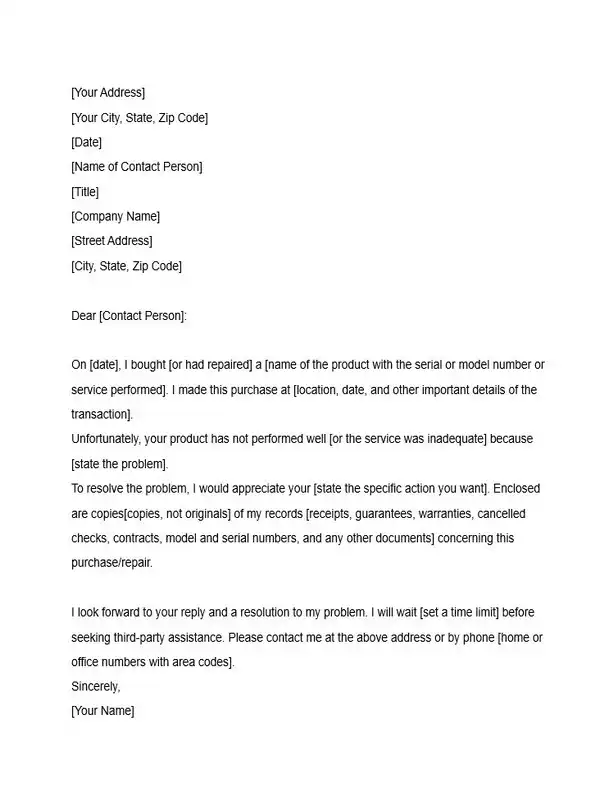
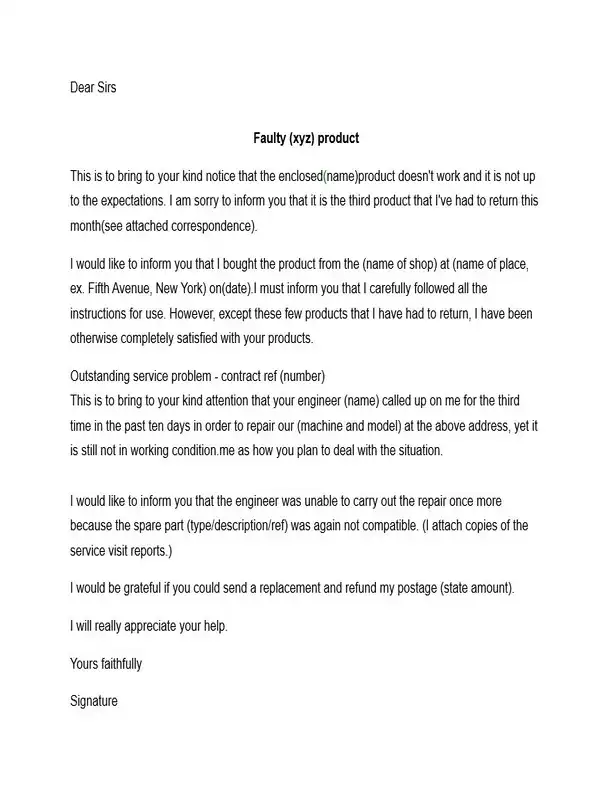
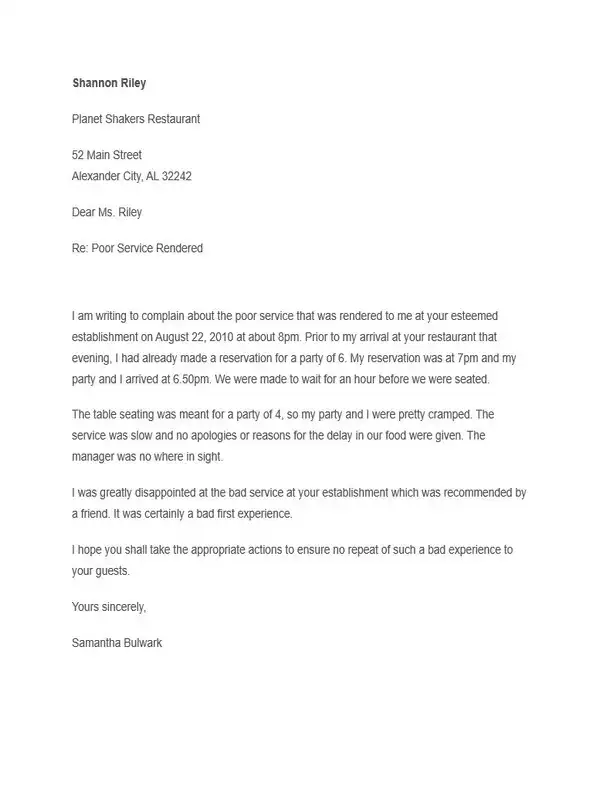
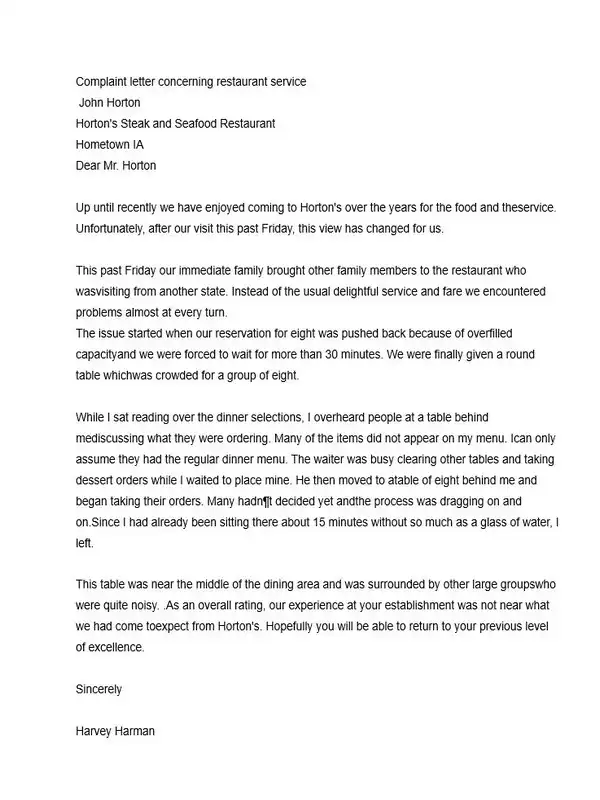
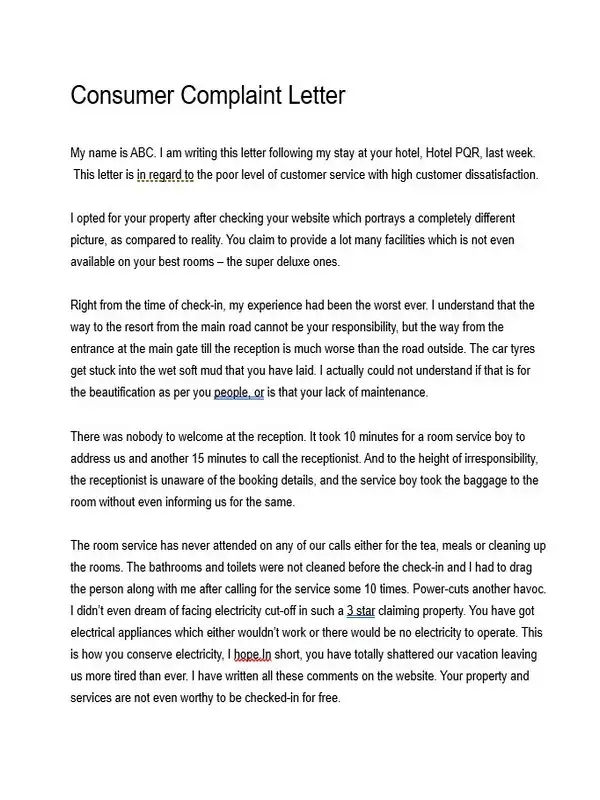
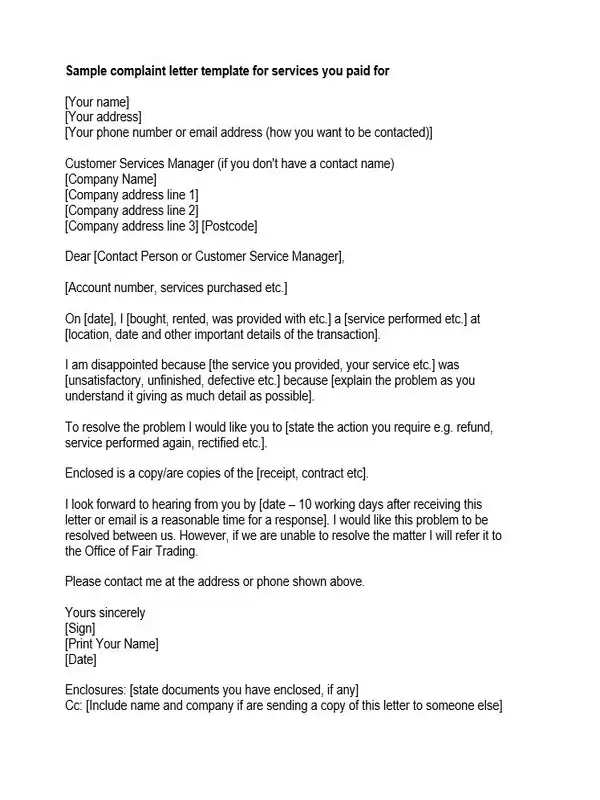
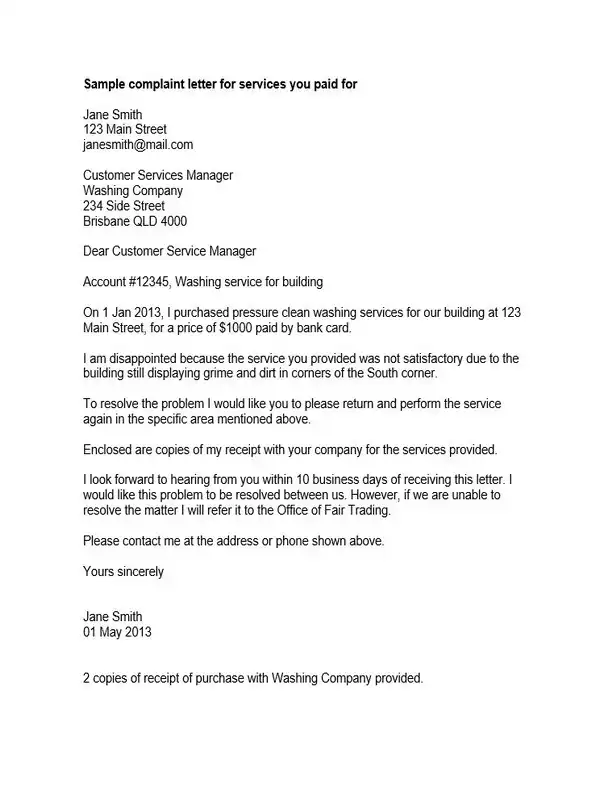
12 Excellent Tip when making consumer complaint letter
What do consumer complaint letter be like and smell like trouble?
Here are 12 ways to help:
- The complaint letter should be written on a good quality paper and printed with an excellent printer.
Anything less than that will not be considered serious. It must be sent at the post office. Avoid using email, as it could be a mistake from the dozens of other letters sent to the business.
The main thing to remember is that your consumer complaint letter should be distinct from other letters as a properly written letter from a knowledgeable consumer. Emails don’t cut it.
- Write your complaint on a personalized “letterhead” that appears professional and demonstrates that you’re ‘in it’ and are a serious educated and knowledgeable consumer.
This letterhead is easily designed by you with the word processing software. I would suggest that you create a border on the page. I also suggest the paragraphs should be aligned on each side for an professional look. If you are able to get an academic degree or any other type of title, put the information on the letterhead.
Do not include your email or phone number. address. You don’t want to talk to these people over the phone. You should only communicate with them via written correspondence.
I was the manager of a department within the largest corporation dealing with consumer complaints. The complaints sent in professionally and looked professional received greater attention since they smelled and appeared to be “trouble.’
- Before you start your letter conduct your research, and Google the company and your issue.
Explore the internet since it is possible that your issue isn’t unique. Other users may have posted information about the problem which you can benefit from.
It’s likely to find that an internet search can uncover something of value and you could write: “I have discovered from my research through the internet that you’ve encountered the same issue in other instances and have refunded the customer. Could I also be reimbursed?”
- Begin your letter with an optimistic note and end conclude with a praise.”I have been a loyal customer for the past 20 years.
I’ve never had problems with your products or services. However, I believe there’s a first time for everything, and the issue mentioned below has taken me off guard. I think it’s an isolated incident that will be easily fixed.’
- In your letter, stick to the facts. Do not embellish the truth , or mention anything you are unable to be able to prove.
Avoid the temptation to make editorial comments about corporate responsibility . The corporate knows that it is a obligation. This issue can be discussed at a later time, however such an editorialize should not be included in your initial letter. It could distract and can make the letters longer, two features you’d like to avoid.
- Be clear about the solution you’re looking for and ask politely for the solution you’re seeking.
- Never, ever let your anger show.
Disturbance, anger, and rude remarks are typical of a sloppy consumer, but they go beyond that they offer the first responder an opportunity upon which to place the label of an unreasonable consumer and to reduce your complaint under the heading of an untrue complaint which it might never come out.
And do not ask for a quick response. Requesting a fast response displays desperation for the business and a lot of first responders will delay the response due to the perception of weak point.
The reality is that you don’t have any control over the timing of their responses, even if you request them to be prompt. Why would you not mention it? I generally add, ‘I’m looking at your reply in the near future.’
It is widely accepted that any company response to a consumer must be swift and prompt. If they fail to respond promptly, this could be used for your benefit later, when the file is evaluated by a supervisor. Sometimes, a pattern of late response(s) could have pushed complaints to the limit and was later examined by a supervisor.
- Do not expect their ‘response.’
If they decide to deny you, they should write the reasons in writing, so that you are able to respond to a real denial. They could do it in a manner that is sloppy, which can give you an advantage.
- The letter should be closed in the correct way: positively and by asking an inquiry.
One of the endings I prefer to include is: “If I’m in error with one of the points I’ve mentioned above, or on another aspect of the matter I’ve outlined Please let me know.’
I’m happy with the way this ended since it places the responsibility for the company to provide a thorough and direct response to the concerns you’ve addressed. If they’re simply trying to silence you with a specific request may be difficult for them to respond. If they fail to deliver their answer, they might be able to make use of this information later on in the event that the situation is evaluated by a supervisor.
Additionally, when there is any flaw or factual error in your argument, it’s best to learn about it earlier rather than later and address it immediately. It is possible to refute it in the following letter, but the main point is to be aware of all you can about their “reasoning to deny you the relief you requested. A faulty reason or inadequately stated argument in a response is similar to finding gold.
End the consumer complaint letter with a positive note. This is essential because the middle portion of the letter will always be negative. The fact is that the writer has messed up and the letter doesn’t sound very professional.
I would suggest that you end your consumer complaint letter. in the following in the following manner… “As I’ve stated above, I have worked with your company for a number of years without having an issue. I know that in a huge business, small-scale mistakes and issues are bound to happen. I am hoping that we can address this issue in a timely manner and anticipate getting back to you when I am ready.”
Then… “Respectfully yours’, the using the word “respectfully” together with a written statement that is eloquently respectful is what you’d like to be recorded.
The actual word ‘respectfully’ affirms that you’re being considerate and sensible… also, in the event that you receive a poorly written response from an incompetent initial response… it will appear stark , particularly when the supervisor reviews the content of your response and what the first responder wrote back.
- Do not conclude the letter by putting an “cc” to the Congressman, the regulator or your congressman, the Better Business Bureau, the Director of the United Nations, The War Crimes Tribunal and so on.Do not make threats to bring the matter before an attorney.
The tactics used at the beginning of the process to complain are immoral and totally unprofessional and are a sign of a novice. In addition, it creates a totally unjustified negative tone , and to many of the rushed “first responders” it’s as if they waved an unwelcome flag before the bull.
You are expressing your displeasure about a behavior or issue that was the company’s first indication that there’s an issue. You should realize that they are not at fault at this point.
In this instance, you’re giving the company an opportunity to correct the issue without the involvement of any third-party and to “thwart” notification to any third party is not appropriate and can set a bad impression.
The main point will be that the consumer complaint letter you send them is the first notice to the person receiving it that something has gone wrong, and you suggest that the issue be resolved by a compromise at this point. In those circumstances, threatening or threat of any kind is unsuitable. You are giving the company the opportunity to behave in a respectful manner. This is a crucial aspect and addressing your concerns in this way is crucial.
- Consider the follow-up letters you write.
The consumer complaint letter. you write to the company in protest of an infraction or error may not be the final letter about the matter. This is why the first or the second letter is not the right time to threaten the company. The first letter should clearly state the facts and make a thoughtful and well-founded demand for a solution.
Expect some push back.’ Even if the company will be able to meet your requests, they might push back and, in the beginning, decline your request. It’s just to determine if they will be able to leave. Why would they not? They’ve got nothing to lose, and all they have to gain. It is important to be aware of this reality.
Expect some resistance and carefully read their response. Create a brief but well written response to their reply and be calm about your anger. If you spot flaws in their argument against denial of the remedy sought, make sure you highlight it and then attack the issue in a rational way and with respect.
- Let your mind cool down after you’ve completed each letter and then revise and revise your letter to be as succinct and concise as is possible.
Let your consumer complaint letter. sit for a few days and then consider the idea. It’s amazing to think of the ideas that you could come up with while you are doing your day-to-day activities and that’s when the best ideas are born – when they’re not pushed.
The next day, come back and carefully edit your consumer complaint letter.and again, making it as concise as you can as well as tweaking your argument and logic. The key to great and efficient writing is to rewrite it.
If you can take another opinion from a trusted friend who will give you an honest and constructive critique. It’s amazing what new eyes can observe.
If you are having trouble in letter writing… take into consideration hiring a professional to assist you. A well-written and professional consumer complaint letter is vital for your achievement.
If you follow these suggestions and mail at least three or four letters which adhere to my guidelines the letter you write will cause trouble for initial responders. Trouble in that in the event that they do not respond, when they don’t want to provide you with the solution you’re seeking, they’ll have to submit your complaint to a higher authority because they suspect or know that you’ll be able to have the matter on their heads. Article Source: http://EzineArticles.com/7193264
If the consumer complaint letter is professionally written, beautifully presented, concise, and respectfully presents a convincing argument for redress , then the most likely you’ll receive the answer you’re seeking.
The remedy you want because the supervisor will perceive your issue as a potential cause for him , and a cause for concern – especially if you over the top of his head.

